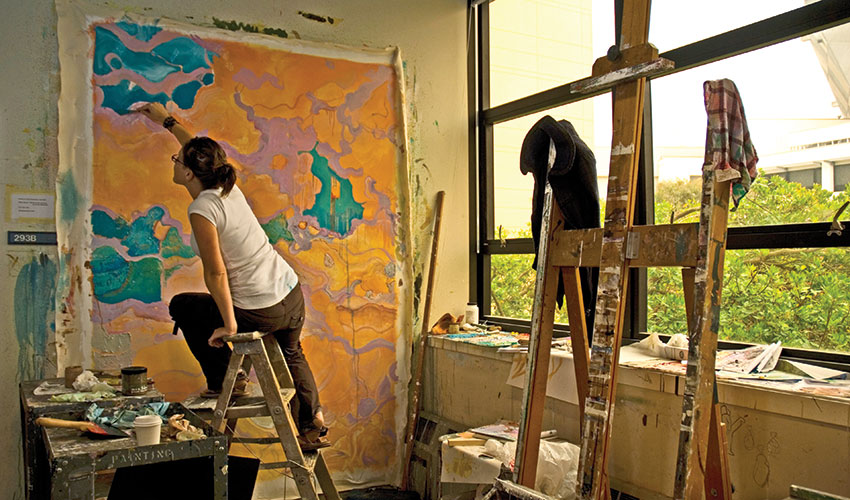Weekend creative activities can help people with non-creative jobs

SF State Assistant Professor of Psychology Kevin Eschleman has found more evidence that non-work creative activities can help job performance.
SF State study finds that security guards, truck drivers could benefit most from free-time pursuits
Just about everybody has had a case of the Mondays: After a fun and active weekend of late nights or long days in the sun, it can be tough to drag yourself into work to start a new week.
So how can people use their personal time to return to their jobs feeling reenergized and refreshed? Assistant Professor of Psychology Kevin Eschleman and two researchers at SF State looked at whether people who do certain jobs or occupations are more likely to benefit from non-work creative activity.
They found that workers with low occupational requirements for creativity, such as cashiers or security guards, benefitted the most from creative activities during their free time. But architects, interior designers and other workers in more creative fields weren’t as likely to benefit from outside creative pursuits. That’s because workers generally need to spend their off-time recovering from work-related stress and re-acquiring mental resources.
“Our findings support the notion that the effectiveness of non-work activities is dependent upon the resources required in one’s occupation,” Eschleman and researchers Michael Mathieu and Jehangir Cooper wrote in an article published in Creativity Research Journal last month.
They surveyed people through SF State’s Health & Organizational Psychology Laboratory, sending emails just before and after weekends asking people what they were doing and how they were feeling. About two-thirds of the time, respondents said they had done something related to arts and crafts, such as painting, sketching, creative writing or playing an instrument.
“And then occasionally people would surprise me by saying, ‘video games,’” Eschleman said. “That one I didn’t think was creative, but then people would say, ‘You can build your own communities.’ It’s very much a live space.”
The findings could be used by organizations to develop efforts to support and educate workers about the benefits of non-work creative activities. Facebook, for example, already offers various workshops at its Menlo Park campus for those who want to work on a mural or learn glass cutting or how to fix bicycles. Other companies could offer flex dollars to pick up an art class, Eschleman said.
Eschleman oversaw a previous study that looked at whether out-of-office pursuits could boost productivity at any type of work. This study looked specifically at whether certain jobs are more likely to benefit from creative activities than others. Occupations that have strict safety protocols, such as a commercial truck driver or a nuclear equipment technician, may have a greater need for non-work creative activity.
“The impact of having people coming back and feeling more energized is that they make fewer mistakes,” Eschleman said. “This isn’t going to necessarily make you handle a major event better. But coming back refreshed might help ensure that you follow the safety rules.”
